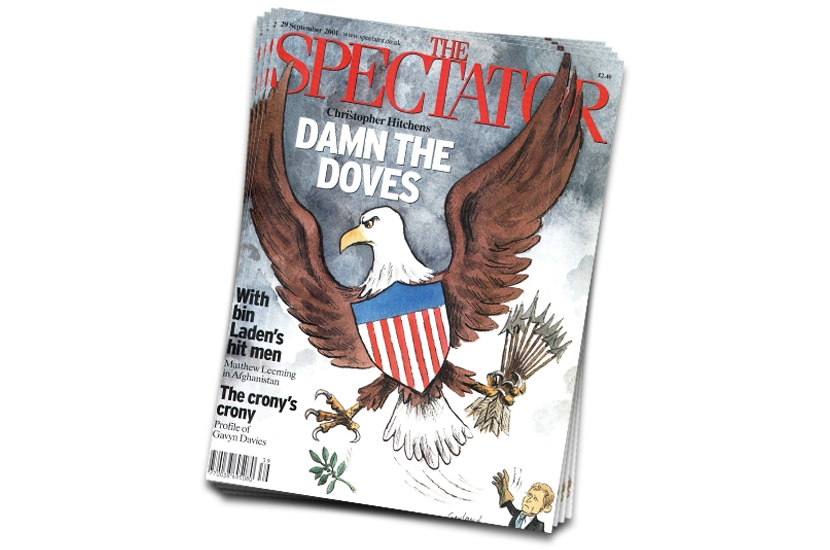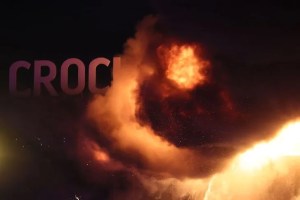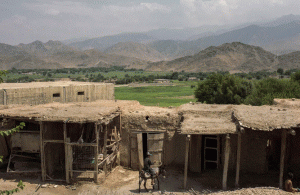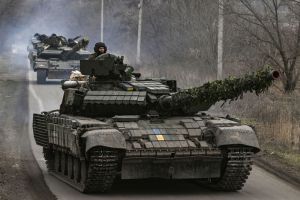Late one soft summer night in 1966, my brother Christopher slipped out of our north Oxford house and bicycled to the center of the city. There he spent a worryingly long time with a spray-paint can, inscribing the words ‘Hey! Hey! LBJ! How many kids did you kill today?’ on a long builders’ hoarding outside Trinity College in Broad Street. You will have to work out for yourselves how I know this, but I do. The punctuation was perfect, and a handwriting expert could easily have told it was him. The slogan endured for months and even appeared in a TV drama filmed in the city some months later. This was how we felt then. There was no other cause so great.
Even on its own terms, the Vietnam war was a terrible error and multitudes did indeed die for a mistake. Its conduct was vainglorious and deluded, largely based on boneheaded bafflement that so much violence could achieve so little against such tiny, ill-equipped foes. Did they really not grasp that men will fight very hard indeed for their own countries? I am completely fascinated to find that so many people of my more or less leftist generation now wish to see one, two, three, many Vietnams, in Iraq, Afghanistan, Libya and Syria — and, I suspect, Iran and perhaps Russia too. They should know better.
It is in the curious and misunderstood events of September 11, 2001 that the riddle is answered. I must admit that, as a former Marxist-Leninist, I was far too cool and dispassionate about this outrage. I assessed it as a military and political event. I thought then — and think now — that people underestimated the importance of the fact that so many of the murderers came from Saudi Arabia. This does not mean that I was callous about the horrible loss of life. Nor does it mean that like a certain famous studio audience for BBC’s Question Time, I thought the Americans ‘had it coming’. I had stopped being a Bolshevik precisely because I had come to hate murder, and to exalt law and freedom. But it does mean that it was not an emotional occasion, or an excuse for a long-awaited change of course. So, as with the other various overwrought spasms of our age, from the death of Diana to the COVID panic, I was left standing on the corner pondering, as the excited crowds rushed this way and that calling for something to be done. I had had my emotional spasm, in private, long ago. I was not interested in having any more.
But for my former comrades, so many of them ex-Trotskyists or ex-communists themselves, including my late brother, they once again had a cause they could pursue with fervor and without reservation. Their hatred of theistic religion could vent itself on Islam, in truth a much more convincing enemy of bodily autonomy than modern Christianity. Their idealist admiration for successful mass violence used in a good cause could attach itself to America’s mighty armies, now spreading secular democracy across the world. Though the Cold War had been formally over for more than a decade when the Twin Towers were demolished, it still persisted in many people’s minds. The Blairites had been merely groping towards idealist war in Kosovo in the late 1990s, and conservatives had been bereft of an enemy when the USSR fell, and still longed for someone, anyone to take its place.
I think the true end of the Cold War, and especially the end of the left’s suspicion of western intelligence agencies and armed force, arrived 20 years ago. We now once again had a simple good vs bad world, like Tolkien’s Middle-earth except that in this version of the story the Shire has huge armies and navies, and nuclear weapons. And at that moment all the lessons of Vietnam, all the knowledge of folly and hubris that it had provided, were forgotten. Those regimes we said were bad were bad. Those that were bad, but were on our side, were spared criticism. And war was once again good.
This is how the North Atlantic Treaty Organization bizarrely found itself deploying its forces to Afghanistan, nearly as far as you can actually get from the North Atlantic. It is also how, after launching a global war against al-Qaeda, the USA found itself in Syria on the same side as the al-Nusra front, at one time an al-Qaeda franchise. And it is how the Arsenal of Democracy found itself supporting an unconstitutional mob putsch in Kiev.
Yes, the foot soldiers of the left marched in protest against the Iraq war. But it was noticeable that much of their officer class, in politics, culture, the media and the academy, were seduced by the war drums. The Blairites jeered that those who opposed the Iraq war were seeking to keep a ‘fascist’ in power. And in the name of this great idealist anti-fascist cause we acquired all the horrors of CIA black sites, Guantanamo Bay, rendition, waterboarding, torture in Abu Ghraib and, at the end, ignominious and predictable defeat amid the embers of the lies our rulers told. From this we learn nothing.
In the following 20 years, these utopians have responded to their failure by becoming a good deal better at lying to themselves and to us. If the war against Saddam were held now, and it was found that there were no WMD, the news would never get out, not least because supine media would classify the information as ‘pro-Saddam war crimes denialism’ and refuse to report it. The anti-Vietnam left, once a reliable army of doubters and critics, have become the warmest supporters of authority and enthusiasts for war. ‘Hey, hey, LBJ’ indeed. From quiet homes and first beginnings, out to the undiscovered ends, we seldom have much idea of where we are going.
This article was originally published in The Spectator’s UK magazine. Subscribe to the World edition here.


















